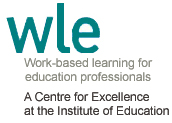 Research
Methods in Informal and Mobile Learning:
Research
Methods in Informal and Mobile Learning:
How to get the data we really want
14 December
2007
WLE Centre, Institute of Education
London, UK
| About MIL-RM |
| Important dates |
| Keynotes |
| PresentationsNEW |
| ParticipantsNEW |
| ProceedingsUPDATED |
| Venue/travel |
| Home |
Last update: 19/01/2008
Mobile learning is often defined in terms of the technology that mediates the learning: learning with mobile technology is mobile learning. Mobility, however, is not an exclusive property of the technology, it also resides in the lifestyle of the learner, who in the course of everyday life moves from one context to another, switching locations, social groups, technologies and topics; and learning often takes place inconspicuously or is crammed in the short gaps between these transitions. Although this view of learning is inclusive of formal education contexts, it is particularly pertinent to informal learning outside educational institutions. Moreover, this view exposes the complexities of mobile learning and the related difficulties of mobile learning research.
Studies of mobile and informal learning are often based on the learners' own accounts and metacognitive analyses of their learning, by means of semi-structured interviews, surveys, and diary studies. Such retrospective accounts of learning come with limitations, in terms of accuracy of recall and of the rationalisation or 'tidying up' that retrospective accounts may undergo. Moreover, younger learners may not possess the metacognitive skills necessary for producing adequate reflective accounts of their experiences.
Furthermore, mobile and informal learning research methods need to allow us to study not only the learning that occurs during the learning experience, but also how it develops afterwards. Learning does not result from single, individual experiences, but rather it is cumulative, "emerging over time through myriad human experiences, including but not limited to experiences in museums and schools; while watching television, reading newspapers and books, conversing with friends and family; and increasingly frequently, through interactions with the Internet. The experiences children and adults have in these various situations, dynamically interact to influence the ways individuals construct scientific knowledge, attitudes, behaviours, and understanding" (Dierking et al. 2003: 109). The cumulative nature of learning makes it difficult to isolate a distinct learning event for inspection. The inherent inconsistency of the learning practice in mobile contexts in terms of activity structure and learning outcomes (Taylor 2006) makes such inspections even more complex.
This workshop will focus on mobile and informal learning research methods in order to address:
- Whether existing methods are adequate in providing us with the data we need: what is missing and how can we access it;
- What are the methodological, practical and ethical concerns with existing methods;
- How existing methods compare: in what ways are the data they yield comparable and / or complementary.
Through presentations and group discussions, we hope to arrive at a set of requirements for mobile and informal learning research methods to inform future work in this area.